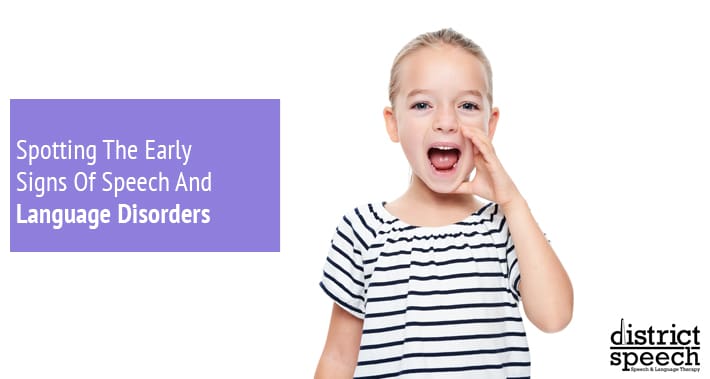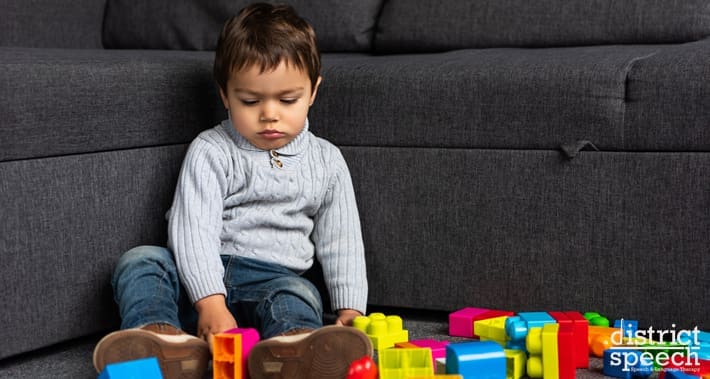
When it comes to learning to speak, children learn and grow at their own pace.
Some kids will learn to walk and talk incredibly early, others may take longer to do so.
However, most children learn key skills within an age range.
If they’ve passed the age range without acquiring these skills, including speech, it can indicate problems.
As a parent, you might be concerned if your children show signs of speech and language delays.
Fortunately, early intervention speech therapy from a qualified speech therapy clinic can help.
Read on to learn more.
Why Is Speech Therapy Early Intervention So Important?
Having the input of an early intervention speech therapist can make a world of difference.
Speech therapy can provide your child with a way to more effectively expressing their thoughts and feelings.
This can allow them to be better understood by others, help prepare them for school, and allow them to feel independent and self assured.
Speech therapists can work with your children to improve speech and language skills, all the while providing you with plenty of resources to provide support at home.
The earlier your child’s concerns can be addressed by speech therapy, the sooner professionals can create a plan to improve their speech and language skills.
Beyond this, however, research shows that early intervention speech therapy tends to be far more effective than waiting until later.
Some pediatricians recommend taking a “wait and see” approach to speech disorders in young children.
But the truth is that in most cases, speech disorders don’t resolve on their own.
In particular, the following disorders are unlikely to go away without speech therapy:
- Orofacial myofunctional disorders
- Cleft palate speech disorders
- Autism spectrum disorder speech issues
- Down syndrome speech issues
- Selective mutism
- Dyslexia
- And many others
How To Tell If You Need Early Intervention Speech Therapy
Speech and language delays often occur early on in a child’s development.
This can impact key aspects of children’s language skills.
For example, the means to write, reading comprehension, and the ability to speak and understand speech.
Speech and language disorders impact one or more of these skills.
But what constitutes a speech or language delay?
Below, you can find examples of telltale signs of speech and language disorders, followed by the expected age range.
If you see your child is not meeting these developmental milestones, they may benefit from speech therapy.
Early Signs Of Language Disorders
Language disorders are what we use to describe those struggling with making themselves heard and understanding others when they speak.
Language disorders can be common in children as they navigate early development.
Early signs in children include:
- By 3 months: Not interacting with others or smiling
- By 7 months: Not babbling, making only a handful of sounds
- By 2 years: Struggling to understand speech, only able to utter a few words, unable to say more than 50 words.
- By 3 years: Struggling to play and interact with others, having problems with reading and writing.
Early Signs Of Hearing Loss
For some children, hearing loss may begin at birth.
Other children can lose their hearing as they age.
Hearing loss can cause issues in speech development, which is why speech therapy techniques for hearing impaired kids are important.
Below are some non-developmental milestones influenced by hearing loss to keep in mind:
- By 12 months: not using gestures or acknowledging sounds, and won’t respond when you call their name.
- By 18 months: has difficulty imitating sounds and following simple directions
- By 2 years: only able to imitate speech or use words and sounds repeatedly, can’t use language spontaneously, and starts developing an unusual vocal tone.
Here are some tell-tale early signs of hearing loss:
- Has difficulty paying attention
- Asks to clarify instructions
- Struggles to tell sounds apart
- Listens to music or watches TV at abnormally loud volumes
- Turns their head to face the direction of a sound
- Talks in a very soft or very loud voice
Early Signs Of Voice Disorders
Voice disorders involve problems with how sound is produced.
Often, these problems start in the larynx and are characterized by the pitch, volume, or quality of the voice.
When a child’s vocal folds do not vibrate quickly enough to create a clear sound, the quality of their voice will take on different qualities compared to the voices of others in their age cohort.
Early signs of voice disorder in children include:
- A raspy, harsh, or hoarse tone
- A pitch that is too high or low
- Strained tone
- A volume that is much too loud or soft
- A lost voice that has yet to return
Early Signs Of Stuttering
Stuttering is an example of a speech disorder that occurs when a child’s speech lags behind what they are attempting to say.
This results in a disrupted flow of speech.
It can be a result of child development, but studies have indicated stuttering can also be attributed to family history or brain injury.
The signs include:
- Repeating sounds, syllables, or words
- Difficulty starting a phrase or sentence
- Broken words or emphasis on syllables or sounds in a word
- Anxiety around the act of speaking itself
- Tension and struggle of the face to create sounds
- Increased stuttering when excited, tired, or facing stress
- Using interjections such as “like” or “um” and pauses to link words together
If your child stutters, it’s a good idea to bring them in for speech therapy treatment for stuttering.

Early Signs Of Speech Sound Disorders
Children can struggle to say sounds clearly.
They learn certain sounds earlier and take longer to master others.
This can be impacted by speech sound disorders like articulation disorder.
Articulation disorder is a problem with making certain sounds.
Another speech sound disorder that can impact children is a phonological process disorder: a pattern of mistakes in sound.
Generally, a child should be able to say all speech sounds correct by four years old.
If they continue to struggle, it may have to do with their speech muscles struggling to receive messages from the brain on how and what to move, otherwise known as childhood apraxia of speech.
They can also struggle with speech because the muscles required are weakened, known as dysarthria.
If you think your child is struggling with speech, these are the milestones to look out for:
- By 1-2 years old: Saying p, b, m, h, and w, incorrectly in words
- By 2-3 years old: Incorrectly saying k, g, f, t, d, and n in words
- By 3 years old: Being hard to understand, leaving off sounds from words, adding distortion, or swapping sounds in words.
If your child shows these signs, it’s a good idea to bring them in for speech therapy for speech sound disorders.
Book Your Appointment With District Speech Today
As we mentioned above, addressing any language or speech concerns about your child early with the help of licensed pediatric speech therapists is your best option.
Contact District Speech & Language Therapy to book an evaluation and take the next step to improving your child’s development.
Our speech therapists work with a range of language and speech disorders and will work with you to create a plan for your child that addresses their personal needs, keeping them up to speed with their peers.
Book your appointment with District Speech today.
1300 I St NW, Suite 400 E,
Washington, DC 20005
- https://g.page/districtspeech
District Speech and Language Therapy specializes in speech therapy, physical therapy, and occupational therapy solutions, for both children and adults, in the Washington D.C and the Arlington Virginia areas.